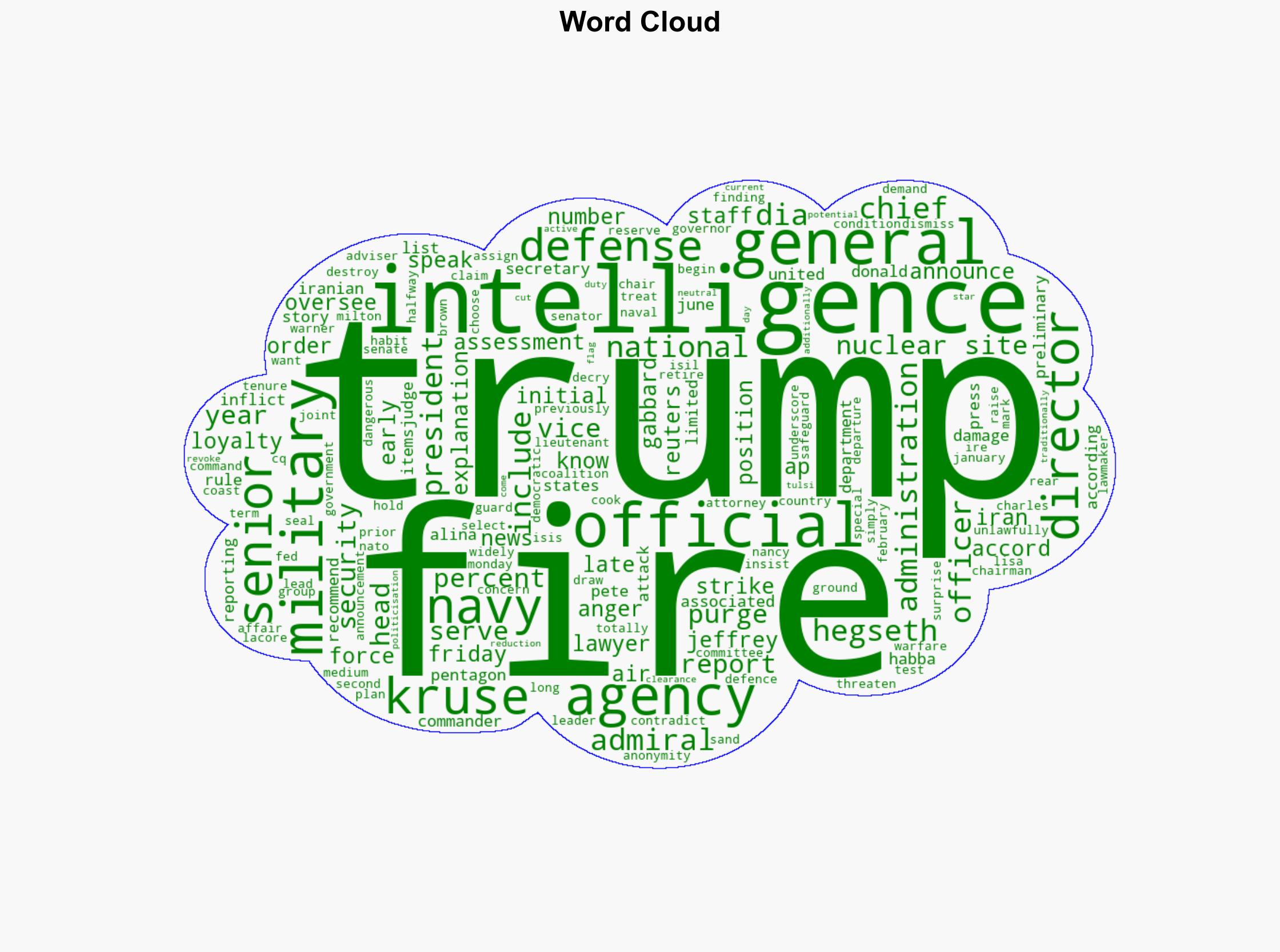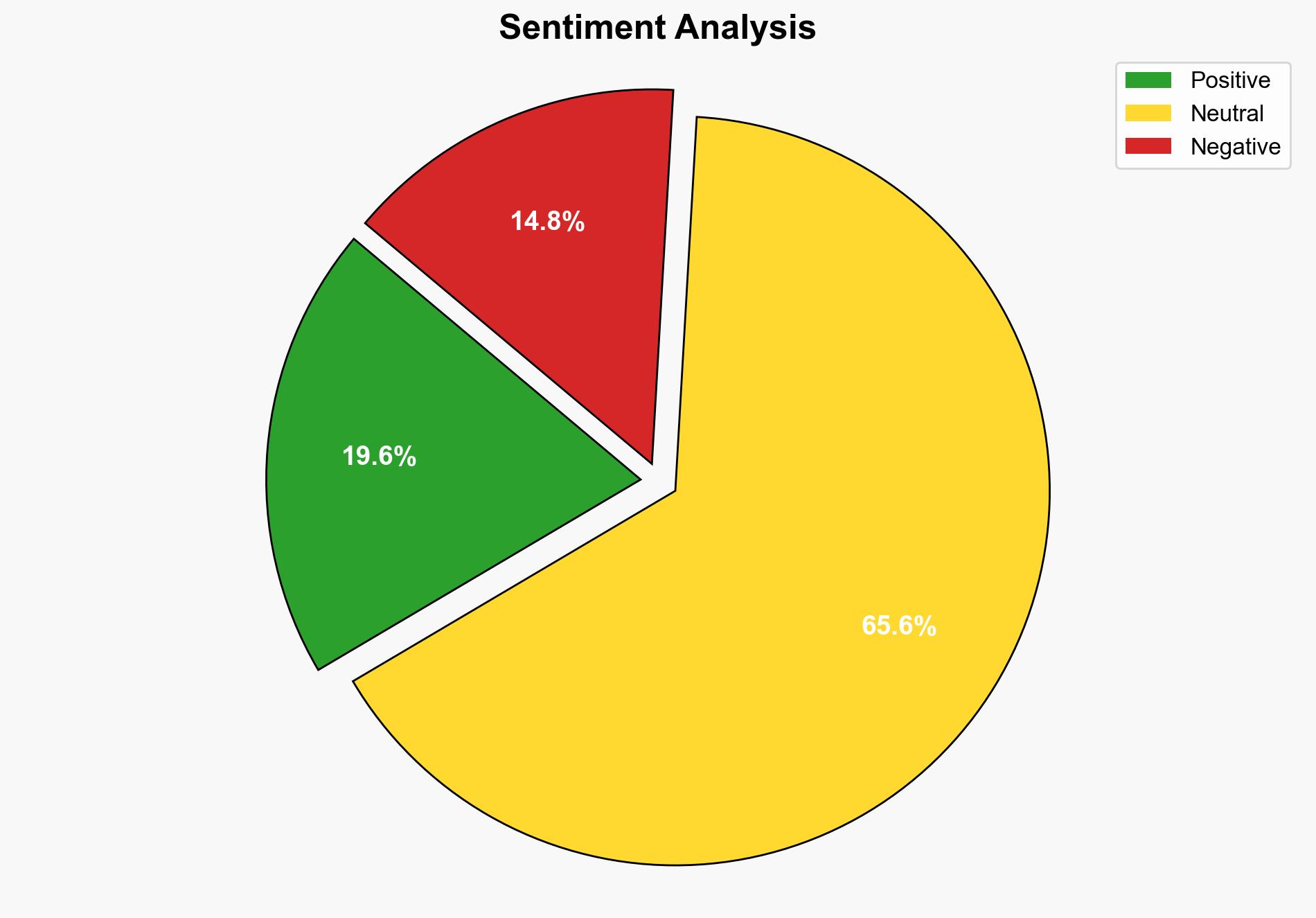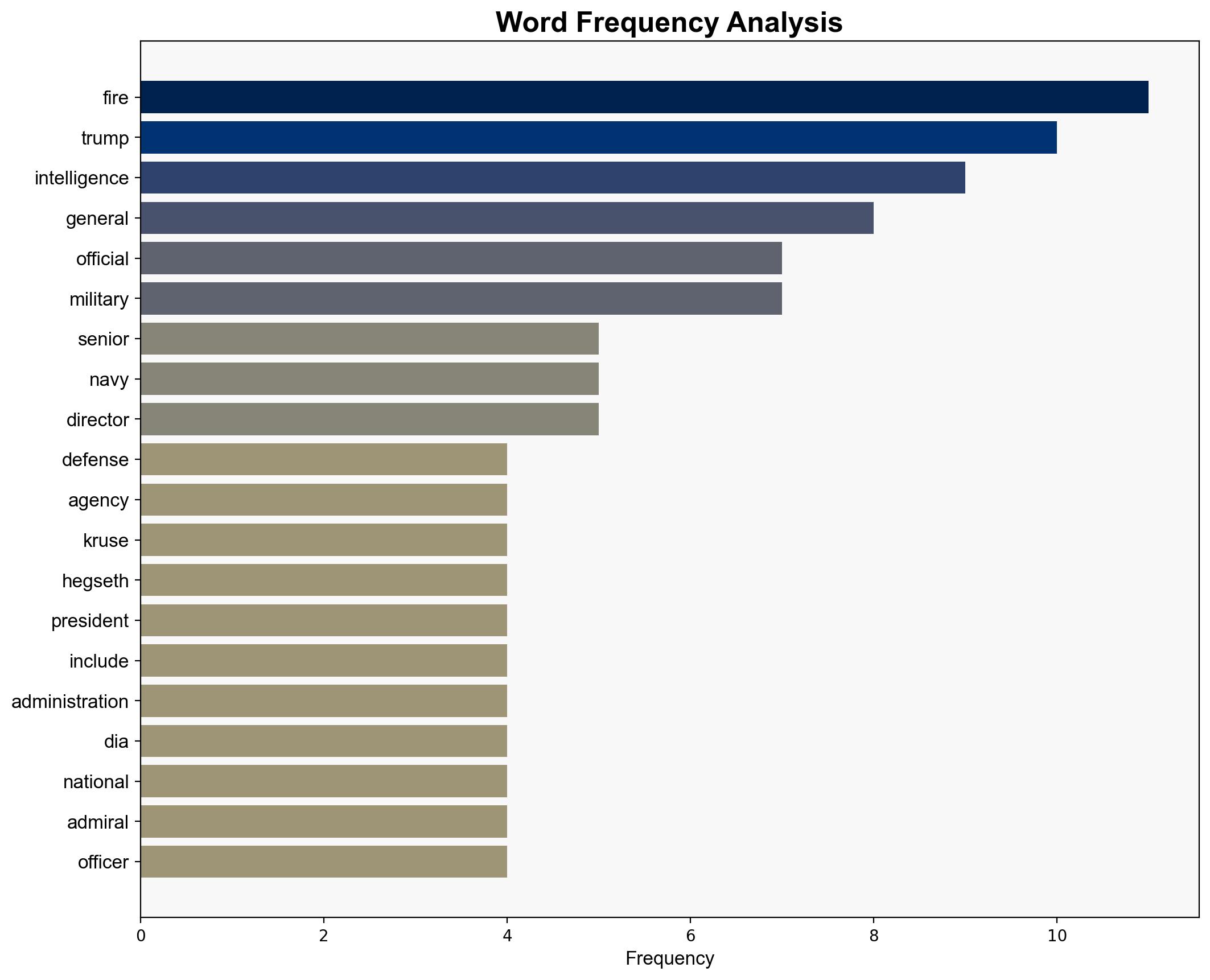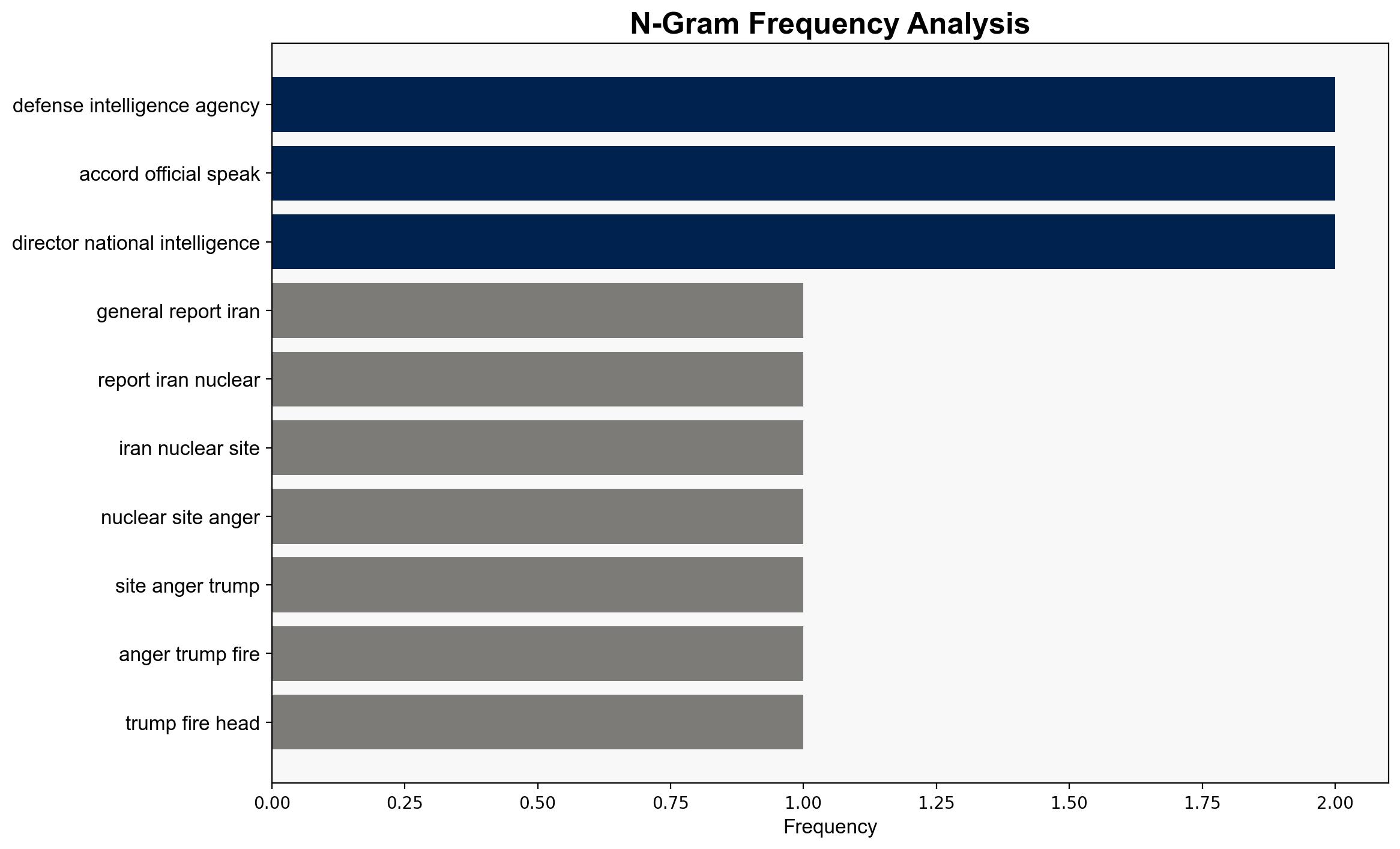US general whose report on Iran nuclear sites angered Trump fired – Al Jazeera English
Published on: 2025-08-23
Intelligence Report: US general whose report on Iran nuclear sites angered Trump fired – Al Jazeera English
1. BLUF (Bottom Line Up Front)
The firing of Jeffrey Kruse, a senior intelligence official, appears to be linked to a report on Iran’s nuclear sites that contradicted the narrative preferred by the Trump administration. The most supported hypothesis is that the dismissal was politically motivated to align intelligence assessments with presidential expectations. Confidence level: Moderate. Recommended action: Monitor for further politicization of intelligence agencies and assess impacts on national security integrity.
2. Competing Hypotheses
1. **Hypothesis 1**: The firing of Jeffrey Kruse was a politically motivated decision to ensure intelligence assessments align with the Trump administration’s narrative on Iran.
– **Supporting Evidence**: The report contradicted Trump’s claims about the extent of damage to Iranian nuclear sites, leading to his dissatisfaction. Previous patterns of dismissals within the administration suggest a preference for loyalty over independent analysis.
2. **Hypothesis 2**: The firing was due to internal performance issues unrelated to the Iran report, possibly linked to broader restructuring within the intelligence community.
– **Supporting Evidence**: The report mentions a reduction in the number of active-duty generals and admirals, suggesting a broader strategic realignment. Lack of explicit reasons for Kruse’s dismissal could indicate non-political factors.
3. Key Assumptions and Red Flags
– **Assumptions**: Hypothesis 1 assumes a direct correlation between the report on Iran and Kruse’s dismissal. Hypothesis 2 assumes the restructuring is a standard operational decision.
– **Red Flags**: Lack of transparency in the dismissal process raises concerns about potential political interference. The absence of detailed performance evaluations for Kruse leaves room for speculation.
– **Blind Spots**: The broader context of intelligence community dynamics and internal communications is not fully explored.
4. Implications and Strategic Risks
– **Political Risks**: Continued politicization of intelligence could undermine the credibility of US intelligence assessments globally.
– **Operational Risks**: Potential morale decline within the intelligence community, leading to decreased effectiveness in threat assessment.
– **Geopolitical Risks**: Misalignment between intelligence and policy could lead to miscalculations in US-Iran relations, increasing regional tensions.
5. Recommendations and Outlook
- Conduct an independent review of the intelligence community’s restructuring to ensure decisions are merit-based.
- Enhance transparency in intelligence assessments to rebuild trust and credibility.
- Scenario Projections:
- Best Case: Restoration of non-partisan intelligence operations, leading to improved decision-making.
- Worst Case: Escalation of political interference, resulting in compromised national security.
- Most Likely: Continued tension between intelligence assessments and political narratives, with periodic dismissals.
6. Key Individuals and Entities
– Jeffrey Kruse
– Donald Trump
– Pete Hegseth
– Nancy Lacore
– Milton Sand
– Tulsi Gabbard
7. Thematic Tags
national security threats, intelligence community, political interference, US-Iran relations




